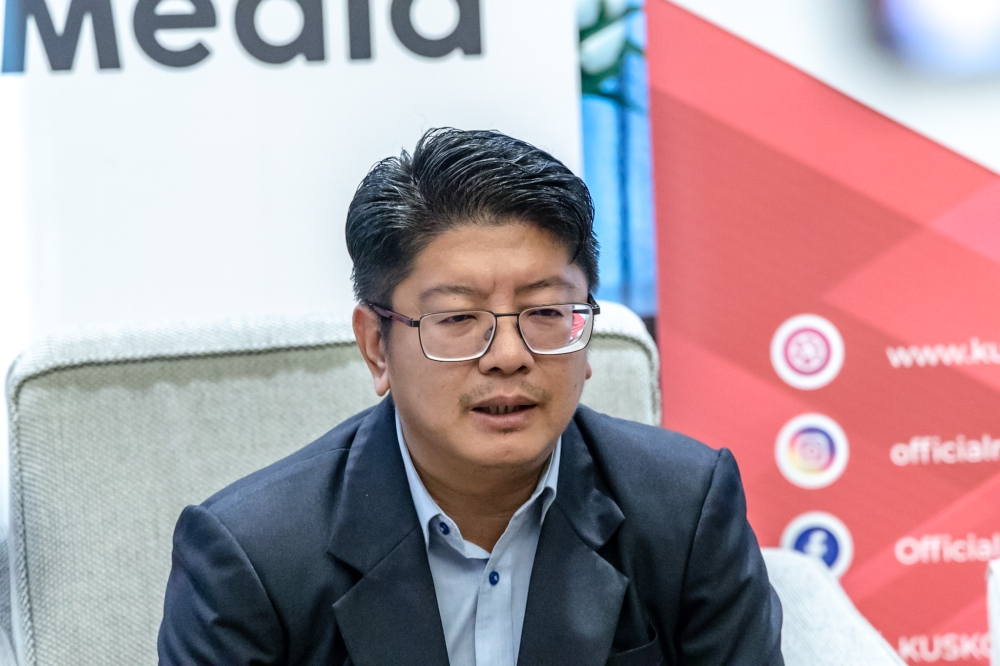KOTA KINABALU, Nov 11 — United Progressive Kinabalu Organisation’s (Upko) decision to quit Pakatan Harapan (PH) has sent ripples across Sabah politics, though it did not come as a surprise to those familiar with the party’s long-building frustrations with its coalition partners.
The move — which also includes party president Datuk Ewon Benedick’s resignation from his federal Cabinet post — has been hailed by some as a bold stand for Sabah rights, but criticised by others as premature.
Some Sabahans see the exit as a principled stand that resonates with voters frustrated by Putrajaya‘s perceived reluctance to honour the state’s 40 per cent revenue entitlement. Others argue it is a political calculation aimed at riding on current sentiment.
Political analyst Tony Paridi Bagang described the decision as a brave and bold move reminiscent of when Parti Bersatu Sabah (PBS) pulled out of Barisan Nasional (BN) at the last minute during the 1990 general election.
At the time, party president Tan Sri Joseph Pairin Kitingan said PBS had no choice but to withdraw from BN two weeks before polling and cooperate with the then federal opposition coalition Gagasan Rakyat, led by Semangat 46 president Tengku Razaleigh Hamzah.
PBS’s withdrawal was reportedly triggered by the federal government’s refusal to set up a university in Sabah, allow a state-owned broadcast station, raise petroleum royalties, abolish the ISA, and return Labuan to Sabah.
In comparison, Upko has cited fundamental disagreements with the federal government over the 40 per cent entitlement during the past three years, the demand for one-third parliamentary representation for Sabah and Sarawak, and the lack of autonomy within PH Sabah.
However, while PBS won a majority of parliamentary seats in 1990, it ultimately found itself in the opposition after Gagasan Rakyat lost. BN‘s retaliation came in the 1994 state election when PBS won by a slim majority but collapsed within two weeks after three of its representatives defected, giving BN control of the 48-seat assembly.
“But at present, Upko’s move can be seen as killing two birds with one stone. They can tout themselves as upholding their struggles on MA63 — the 40 per cent issue especially — and prove Upko is a legitimate local party fighting for Sabah First,” Bagang said.
Observers believe the party’s “Sabah First” messaging is likely to resonate strongly in urban, semi-urban and some interior seats where sentiment over state rights remains deep.
That sentiment surged following the October 17 High Court ruling affirming Sabah’s constitutional revenue entitlement, followed by the federal government’s hesitation to comply.
Upko’s strength and relevance have historically relied on partnerships with national coalitions. The party was part of BN from 1994 to 2018, during which its president and founder, Tan Sri Bernard Dompok served as chief minister under the rotation system, held various federal Cabinet roles and was appointed Malaysia’s first ambassador to the Holy See from 2016 to 2018.
Former president Datuk Seri Wilfred Madius Tangau served as Minister of Science, Technology and Innovation from July 2015 to May 2018 under BN. After GE14, Upko left BN to form the Sabah government with Warisan and PH.
After GE15, Ewon was appointed Minister of Entrepreneur Development and Cooperatives under the unity government.
“Being federal ministers helped anchor Upko’s visibility. Losing that link may blunt its influence, especially in constituencies dependent on federal funding,” another analyst said.
At the same time, the move positions Ewon as a defender of Sabah rights, potentially boosting his stature, while putting the GRS-PH state government in a difficult position as it seeks to justify what critics see as federal pressure.
With Upko now casting itself as the conscience of the “Sabah First” movement, GRS, PH and to some extent BN may struggle to justify their alignment with the federal government’s cautious approach toward the 40 per cent entitlement.
“Now, if the federal government announces they will not appeal the High Court ruling, Ewon can claim to have been a major pressure point in achieving that, and if they do appeal, Upko can claim they did the right thing. Either way, it looks good on them,” political analyst Bridget Welsh said.
Upko maintains that only Sabah-based parties truly understand the state’s aspirations and says it is open to working with other local parties that share its vision for the effective implementation of MA63, including the long-disputed 40 per cent revenue entitlement.
“GRS and PH will likely have to pivot with an effective narrative to counter the sentiments that will undoubtedly start to turn against them,” said UMS senior lecturer Romzi Ationg.
“If Upko can optimise and rally local parties and grassroots sentiment around this, they could become the catalyst for a stronger Sabah-based bloc. But they must show their decision is backed by a genuine agenda; only then can they attract voters,” he said.
Welsh, however, said that with only days left until nomination day, it is more likely that Upko and other Sabah-based parties would form a loose alliance midway or after polling.
Still, much depends on whether Upko can translate its principles into political momentum.
The party currently has only one assemblyman, Ewon, and two MPs, meaning its next move — whether aligning with Warisan, long-time Sabah rights advocate Datuk Jeffrey Kitingan’s Parti Solidariti Tanah Airku, or other local players — will determine whether this marks a turning point in Sabah’s political landscape.
For now, Upko’s exit has injected fresh energy into the “Sabah First” narrative — one that could redefine the coming election if voters see it as more than political theatre.






